The legacy of the First Ecumenical Council is discussed in St. Petersburg Theological Academy
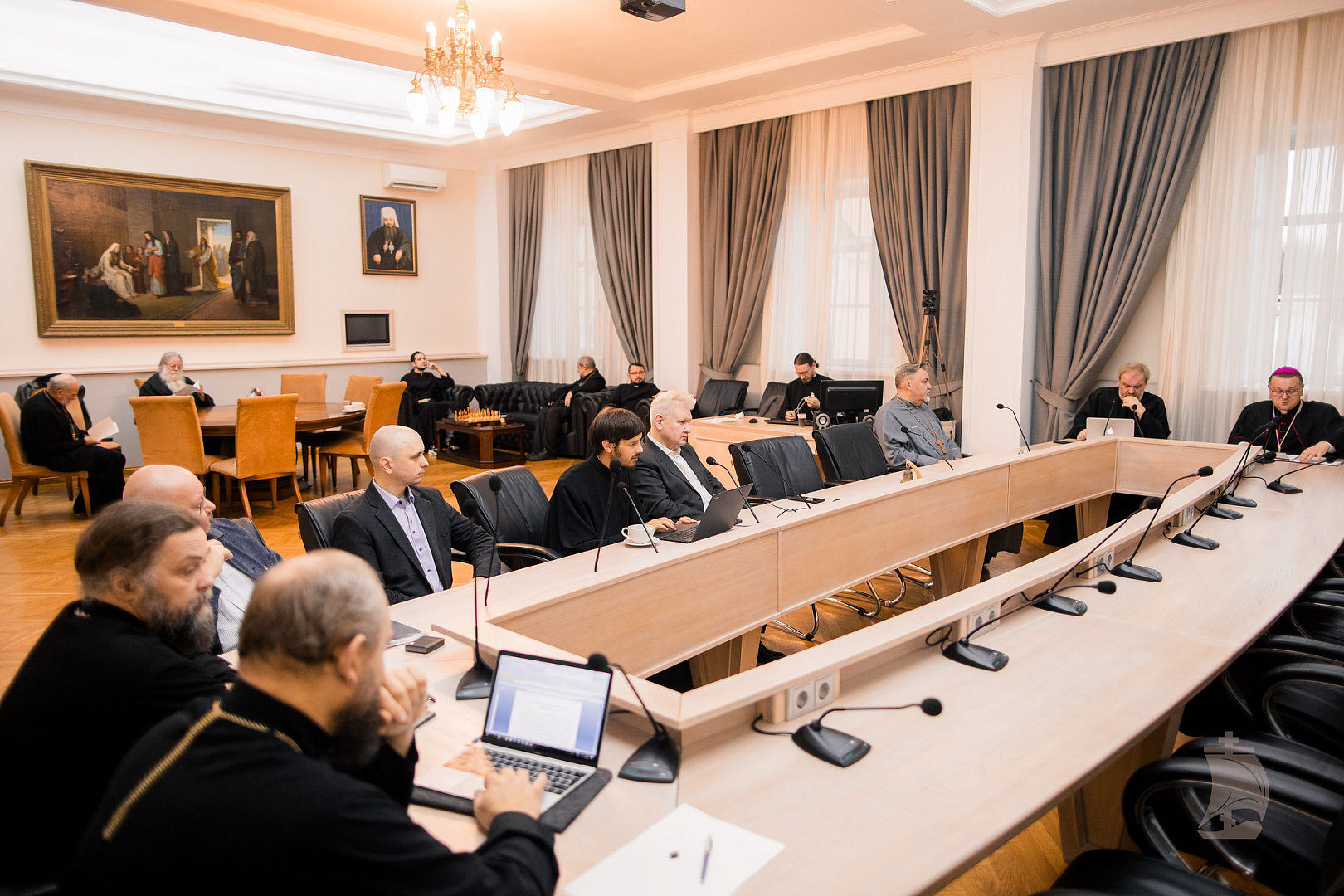
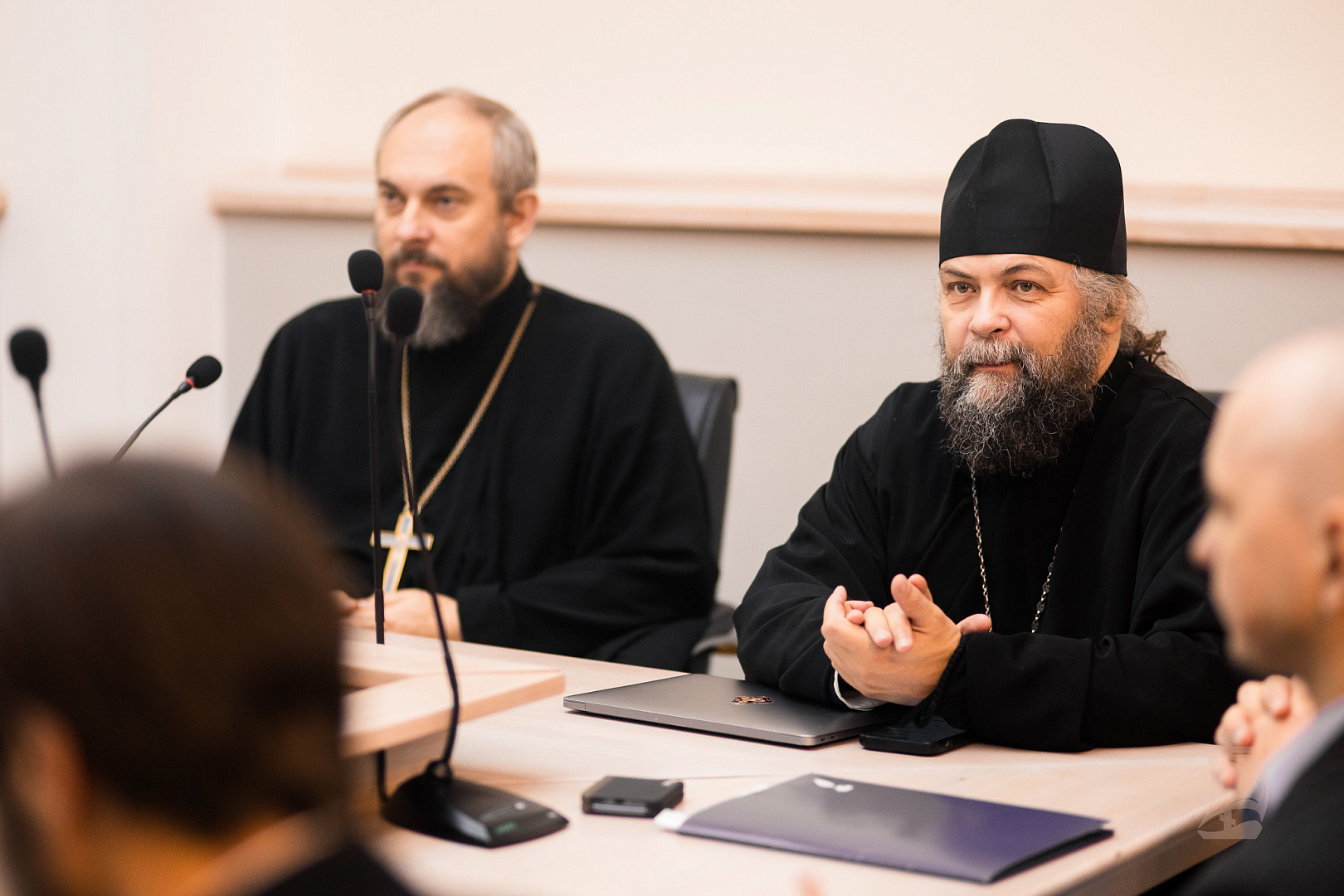
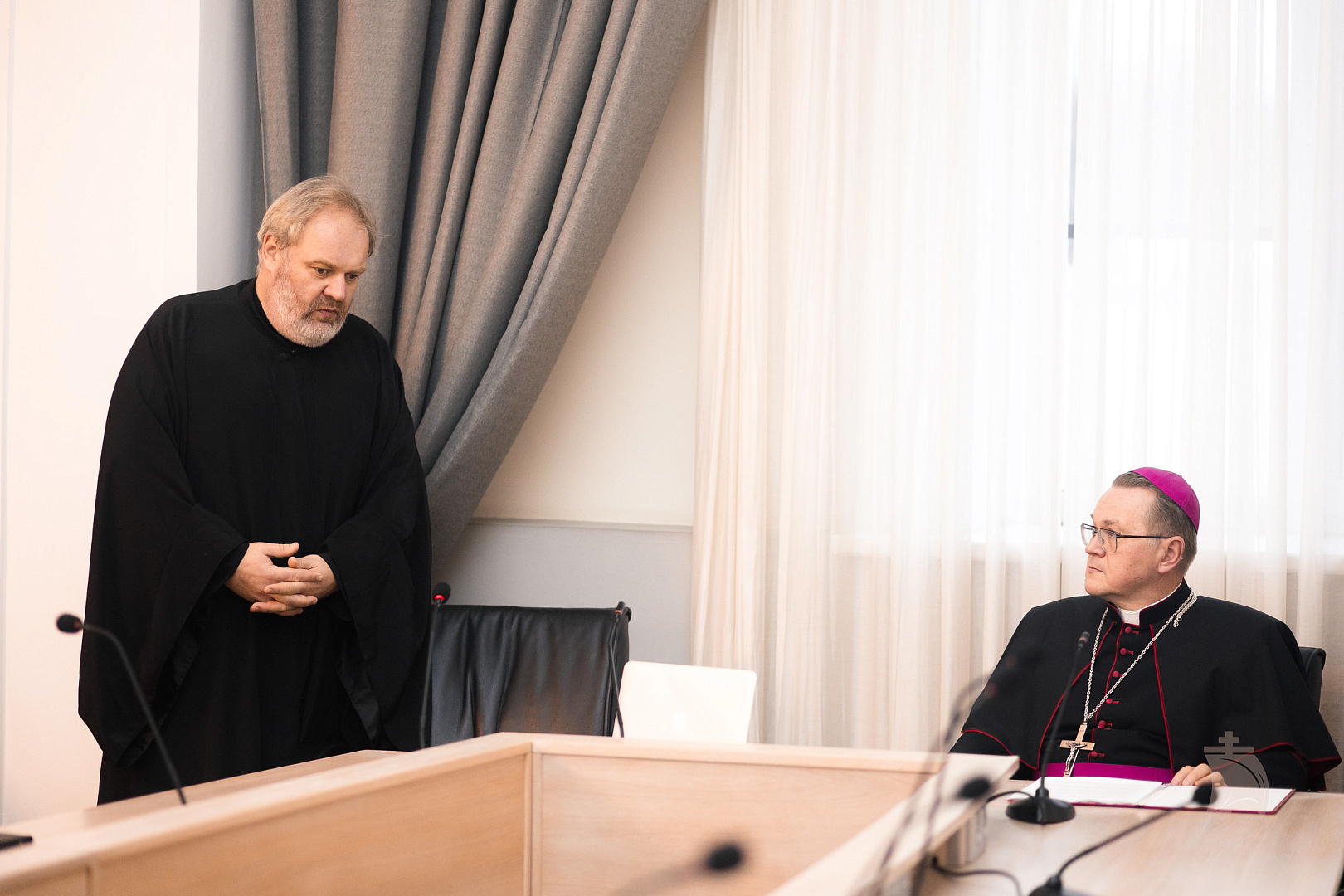
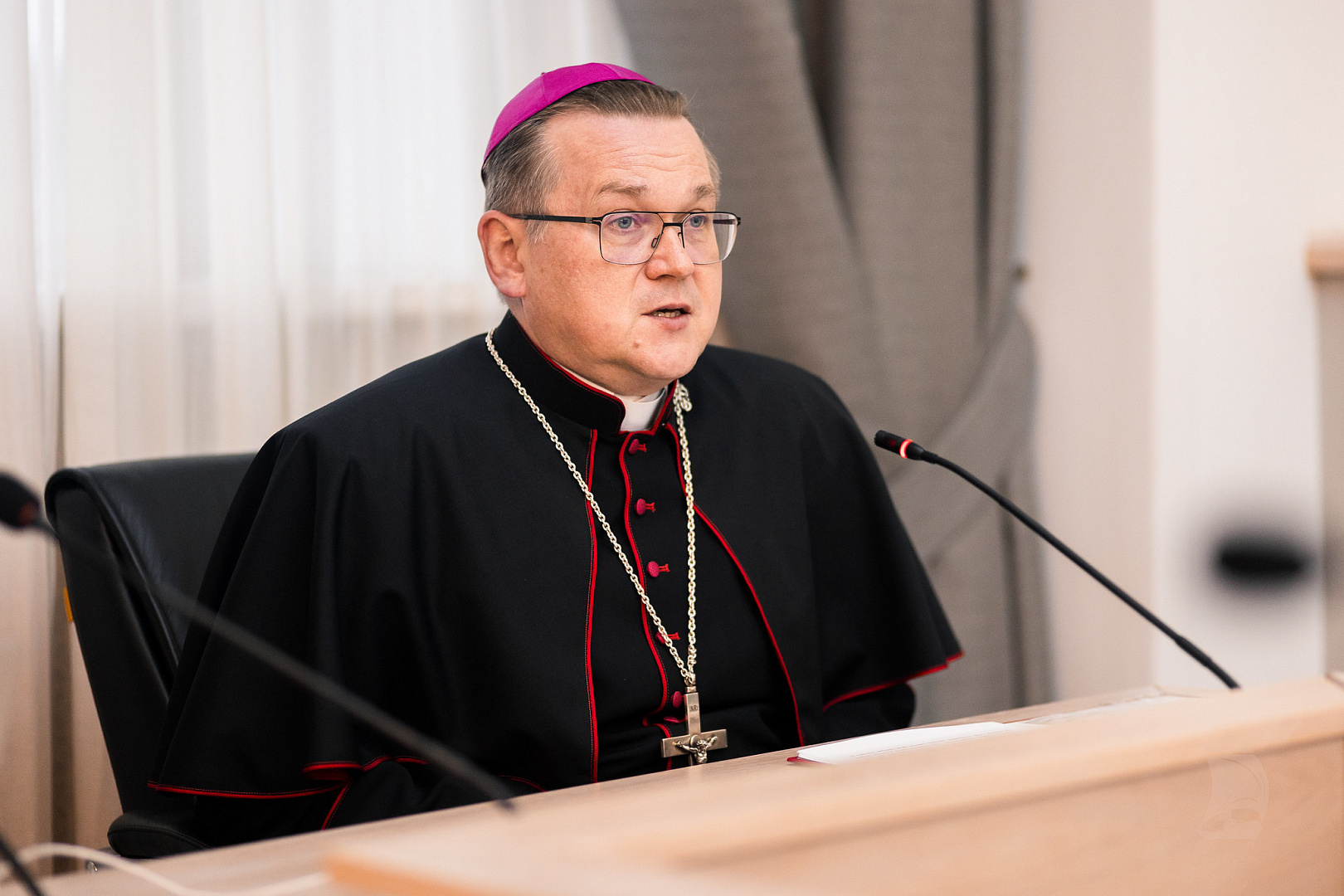
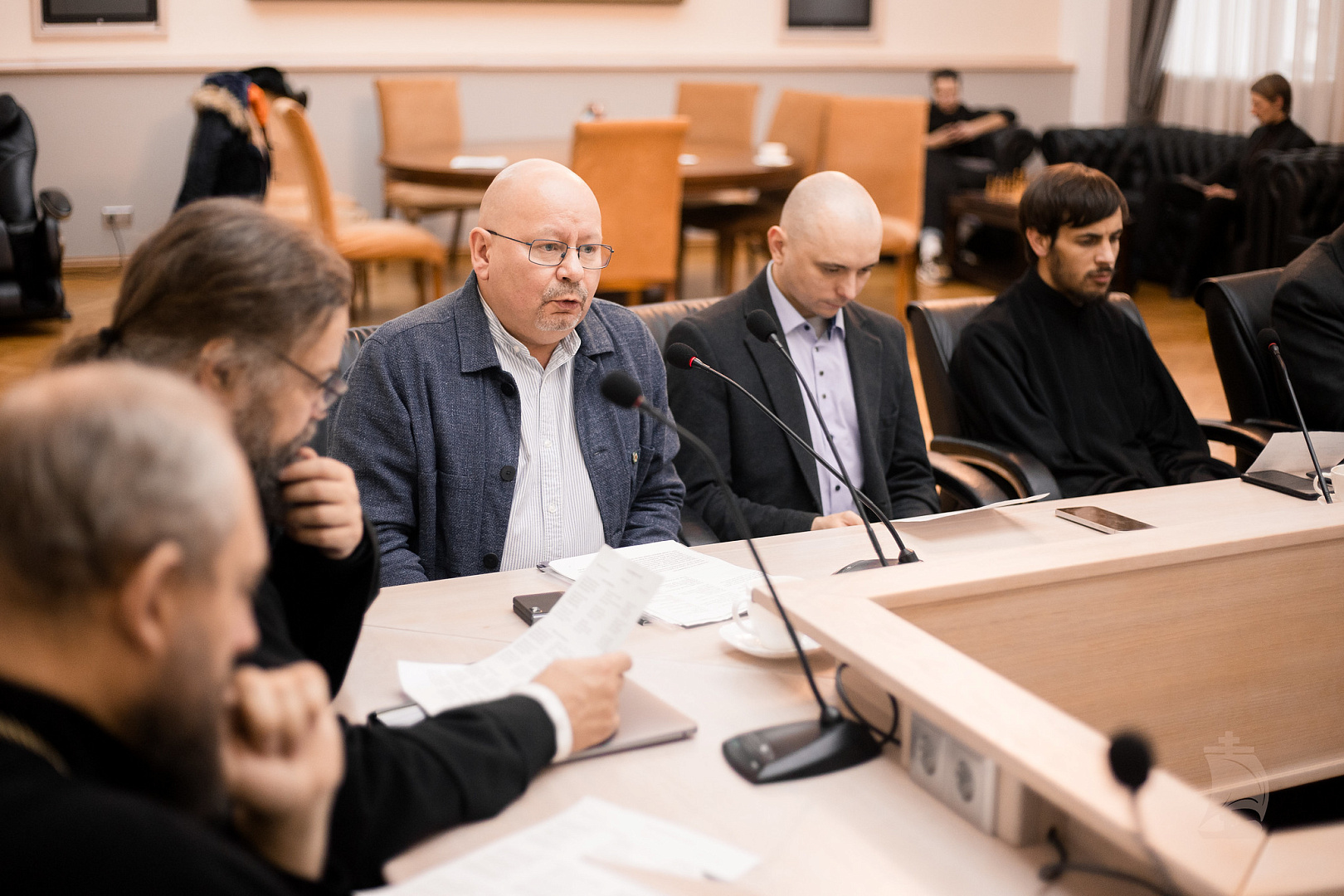
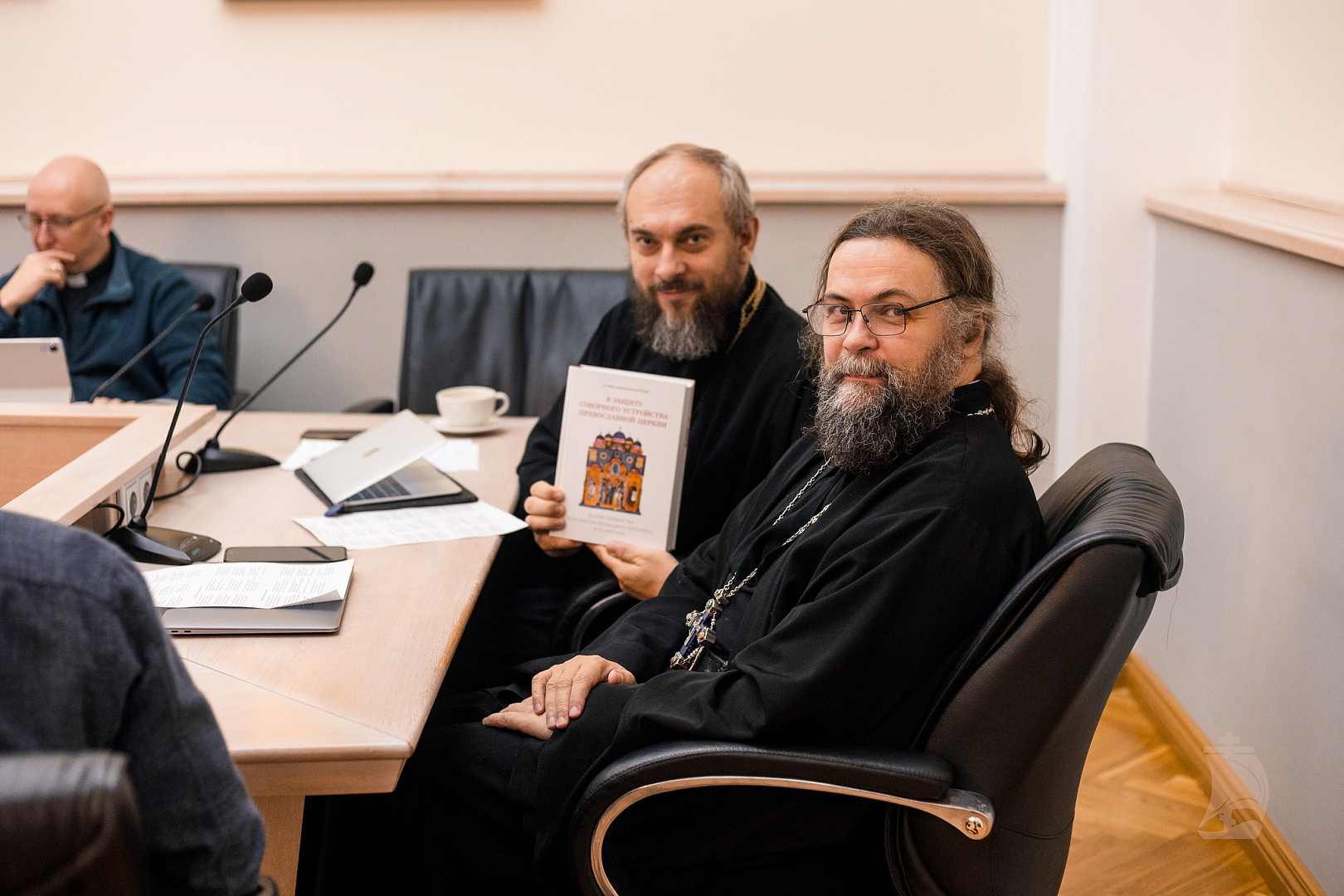
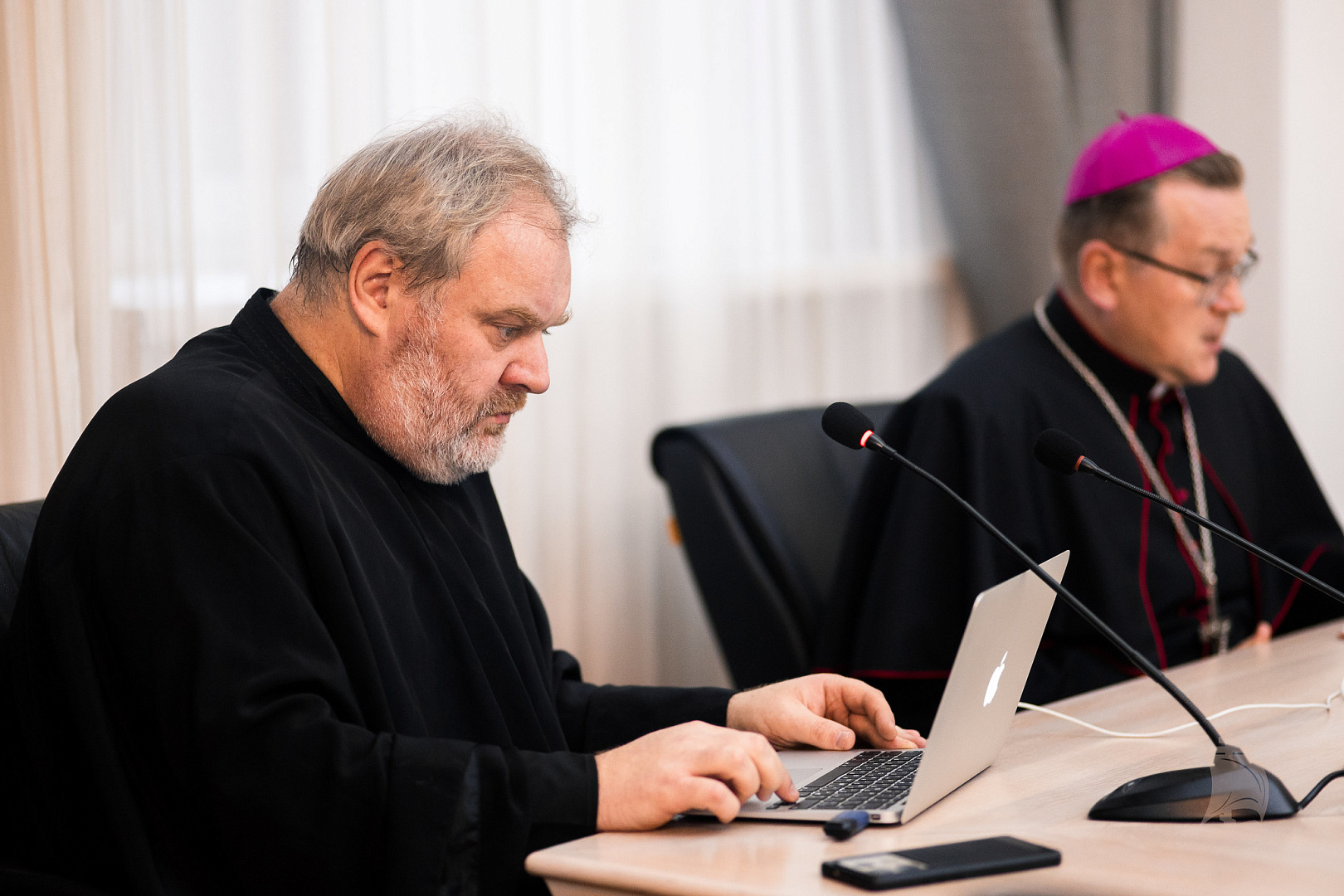
DECR Communications Service, 27.10.2025.
From October 20 to 25, a scientific and theological conference titled "The Legacy of the First Ecumenical Council: 325–2025. The Unity of the Tradition and the Challenges of Epochs" was held in Moscow and in St. Petersburg.
The event was organized by St. Tikhon's Orthodox University for the Humanities and the St. Petersburg Theological Academy and dedicated to the 1700th anniversary of the First Ecumenical Council held in Nicaea.
The conference took place at the St. Petersburg Theological Academy from October 23 to 25, Press Service of the Academy reports.
On October 23, the first section on ‘Modern Dogmatic Challenges’ was moderated by priest Mikhail Legeyev, PhD in theology, associate professor of the Department of Theology at the St. Petersburg Theological Academy, and priest Alexei Nogovitsyn. The main discussion revolved around the key areas related to the critical understanding of contemporary theology.
Reports on ecclesiology were delivered by Fr. Mikhail Legeyev, Dr. Silven Milkov Tutekov from the University of Veliko Tarnovo, Bulgaria, and Fr. Alexei Ilyin. They analyzed fundamental concepts of church life, such as institution and charisma, the universal and the particular, as well as the reinterpretation of the dogmatic language in the systems of leading modern theologians. This provided a conceptual framework for polemic with ecclesiological tendencies of the Patriarchate of Constantinople.
Fr. Alexei Nogovitsyn and sister Longina (Petrova) considered the fundamentals of triadology. They offered a historical and logical-philosophical interpretation of the doctrine of the Triune God, aimed at affirming its interminable truth in the face of modern intellectual challenges.
The practical implementation of dogma in the life of the Church was explored by Andrei A. Gorbachev, PhD in theology, who spoke about the doctrine of the sacraments. Hieromonk Jonah (Kudryakov) and Ms. Larisa Yu. Starozhilova focused on the principles of conciliar decision-making and the relevance of canonical rules of the First Ecumenical Council in present church realities.
A roundtable on "The Connection between Binary Approach and Neopapism in Modern Constantinopolitan Theology" followed. The participants analyzed the historical and theological origins of this connection, highlighting the role of Protopresbyter Alexander Schmemann in its formation. Particular attention was paid to a system analysis of key concepts using the theology of Metropolitan John (Zizioulas) as an example. There were explored his concepts of communion in comparison with those of other thinkers, the teaching on bishops, and the ecclesial hypostasis as the utmost expression of the binary principle. Also discussed were some practical issues, such as the work of the Society for Contemporary Ecclesiological Studies at the St. Petersburg Theological Academy.
That same day, there was held the section titled "The Institute of Ecumenical Councils as the Historical Phenomenon." It was moderated by archpriest Konstantin Kostromin, vice-rector of the Academy for scientific and theological work and professor at the church history chair, and deacon Nikolai Borisov, senior lecturer at the same chair.
Also discussed were councils from the pre-Nicene period. The political background of the First Ecumenical Council and the role of Emperor Constantine the Great were analyzed as well as the Nicene Creed as one of the instruments for overcoming heresies.
Particular attention was paid to the overcoming of divisions in the Church in the context of healing the schism in Antioch by St. Basil the Great.
Speaking about the anti-Latin polemic and the impact of the Council of Nicaea on hymnography and versions of the Creed during the 17th-century book review, the participants explored the reception and understanding of the legacy of the councils in Ancient Rus'.
A contemporary perspective was presented through an analysis of the attempt to convene an Ecumenical Council in the Serbian Orthodox Church in the 20th century and specific perception of the Council of Nicaea in the tradition of the Armenian Apostolic Church.
On October 24, a roundtable discussion was held at the book lounge of the St. Petersburg Theological Academy by the Society for the Study of Church Law named after Timofei Barsov, also called Barsov society, titled "The Role and Significance of the First Ecumenical Council for the Science of Canon Law."
On the same day, a plenary session was held. Presented were the following reports: “The Nicene Creed in the Light of the Tradition of the Ancient Church. History of the Text and the Evolution of Ideas about its Immutability” by G.Ye.Zakharov, PhD in theology and in history, head of the systematic theology and patrology chair of the theological faculty and associate professor of world history chair of the historical and philological faculty of St. Tikhon’s Orthodox University for the Humanities, and Petr A. Pashkov, PhD in theology, associate professor at the chair of ancient languages and early Christian literature; “Materialism and Idealism in the Light of the First Ecumenical Council and Polemic with the Arians” by Sergei A. Isayev, senior research fellow at the world history department of the St. Petersburg Institute of History of the Russian Academy of Sciences and associate professor of the church history chair; “Memory of the First Ecumenical Council in Serbia. From the Middle Ages to the Present Day" by deacon Ivica Čairović, PhD in theology, associate professor of the University of Belgrade.
The conference concluded on October 25 with a roundtable discussion on "The Council of Nicaea in Holy Tradition and Memory of Christian East and West." The session was moderated by protodeacon Konstantin Markovich, PhD in theology, associate professor at the Department of Practical Church Disciplines at the St. Petersburg Theological Academy.
Among the participants in the conference were also hegumen Dionisy (Shlenov), head of the Postgraduate School at the Moscow Theological Academy; hegumen Mikhail (Kiselev), chair of the Missionary Department of the Diocese of Murmansk; protodeacon Vladimir Vasilik, professor at St. Petersburg State University; and hierodeacon Grigory (Trofimov), lecturer at the Moscow Theological Academy and at St.Tikhon's Orthodox University for the Humanities.
The round table was attended by representatives of the Roman Catholic Church, namely, Mgr. Nikolai Dubinin, auxiliary bishop of the Archdiocese of the Mother of God in Moscow, and Rev. Hyacinthe Destivelle, professor at the Angelicum Pontifical University. Representing his church was Rev. Anton Tikhomirov, PhD in theology, rector of the Theological Seminary of the Evangelical Lutheran Church in St. Petersburg.
